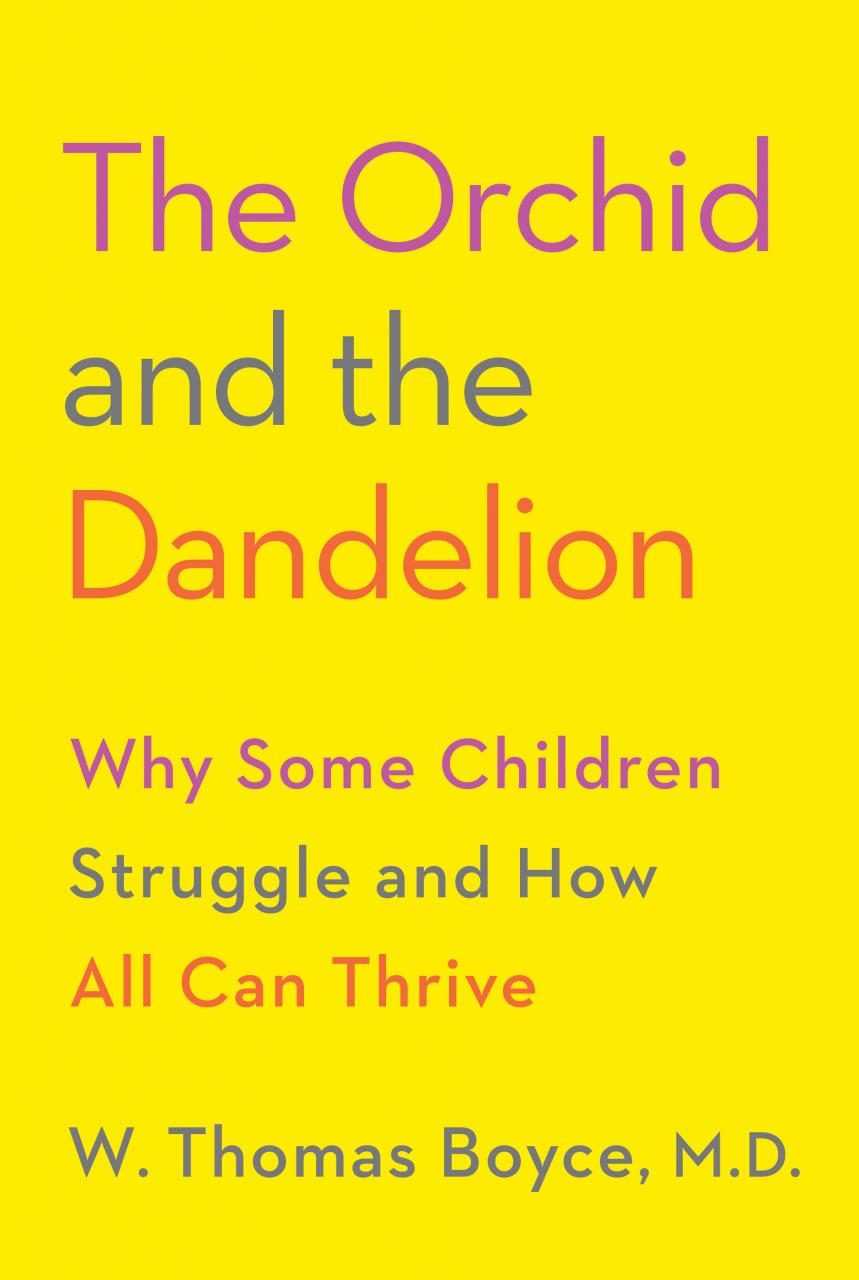W. Thomas Boyce, MD
Lisa and John Pritzker Distinguished Profesor of Developmental and Behavioral Health, University of California, San Francisco, Co-Director, Child and Brain Development Program, Canadian Institute for Advanced Research
The Orchid and the Dandelion: Why Some Children Struggle and How All Can Thrive
Trained as a developmental pediatrician and an epidemiologist, W. Thomas Boyce, MD, in his new book, The Orchid and the Dandelion: Why Some Children Struggle and How All Can Thrive, lays out argument showing that children vary greatly in their development, and the cause is a deft interplay of genes and environment. These interactions begin in utero, since mother and unborn child are influenced by myriad factors — the mother’s stress levels, nutrition, and sleep hygiene, for example. Once born, children raised in the same family aren’t all alike by nature, and aren’t raised alike, either; the same conditions that may work well for one child may be deleterious for another.
80-85% of children are “dandelions,” healthy, sturdy, transplantable survivors who can grow in most environments. 15-20% of children are “orchids,” highly-sensitive, fragile, shy, and susceptible and permeable to the relationships that encircle and sustain them. Orchid children are far more susceptible to stress and adversity, have far greater health challenges, and may suffer in school due to social hierarchies. But planted in the proper warm, close, nurturing environment, both at home and at school, orchid children have the greatest promise and resilience, creative futures, and deeper relationships all made possible through the “alchemy of nurturing families and communities and transformative care,” to quote Dr. Boyce.
Event Sponsors
Upcoming Events
Year of the Monkey: An Evening with Patti Smith
Patti Smith
Writer, performer, and visual artist
Evanston Township High School Auditorium
Live streaming video of this event will be available, beginning at 7:00 PM, on the ETHS Wildkits YouTube Live Stream channel.
Special thanks to DJ Jeff Pazen for pre- and post-event music!

The Power of Human: How Our Shared Humanity Can Help Us Create a Better World
Adam Waytz, Ph.D.
Associate Professor of Management and Organizations at Northwestern University’s Kellogg School of Management.
North Shore Country Day School Auditorium
The Great Juggling Act: Balancing Life as a Parent
Julie Morgenstern
Time-management and productivity specialist, and author of Organizing from the Inside Out, Never Check Email in the Morning, SHED Your Stuff, Change Your Life, and the brand-new Time to Parent: Organizing Your Life to Bring Out the Best in Your Child and You
New Trier High School, Northfield Campus, Cornog Auditorium



